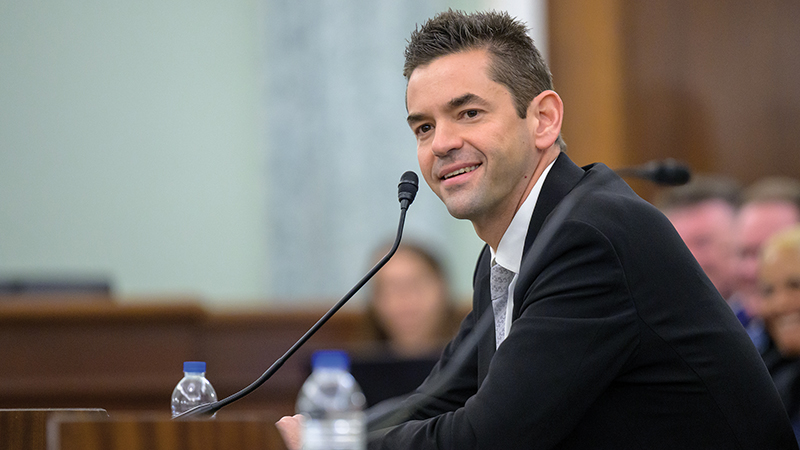Global Study Highlights Public Support for Climate Policies Linked to Extreme Weather Attribution
Research spanning 68 countries reveals stronger policy backing when individuals connect extreme weather events to climate change, with highest support observed in North America and Europe.
Study Overview
A comprehensive report titled “Extreme weather event attribution: climate policy support across the world”, published by Nature, analyzed survey data from over 71,000 participants across 68 countries. The study investigated the correlation between public perception of extreme weather events as manifestations of climate change and the support for various climate policies.
Key Findings
- Regional Variations in Policy Support: The link between attributing extreme weather to climate change and supporting climate policies was significantly stronger in North America, Australia, and several European countries compared to the global average. Conversely, this association was weaker in countries such as Peru and South Africa.
- Climate Policies Assessed: The study evaluated public support for five specific climate policies:
- Increasing taxes on carbon-intensive foods
- Raising taxes on fossil fuels
- Expanding infrastructure for public transportation
- Increasing the use of sustainable energy
- Protecting forested and land areas
- Popularity of Policies: Policies focused on protecting forested and land areas and promoting sustainable energy received the highest public support. In contrast, increasing taxes on carbon-intensive foods and fossil fuels were the least popular.
- Impact of Specific Extreme Weather Events: Countries experiencing wildfires demonstrated greater support for climate policies, attributed to the visible damage and health concerns that make the connection to climate change more apparent. Heavy precipitation events were less commonly linked to climate change in public perception, representing an exception.
- Demographic Factors Influencing Attribution: Women, older individuals, people with higher education and income levels, urban residents, more religious individuals, and those with liberal or left-leaning political views were more likely to associate extreme weather events with climate change.
Implications for Sustainable Development Goals (SDGs)
This study underscores the critical role of public awareness and perception in advancing climate action, directly supporting several SDGs, including:
- SDG 13: Climate Action – Enhancing understanding of climate change attribution fosters greater public support for mitigation policies.
- SDG 11: Sustainable Cities and Communities – Support for expanding public transportation infrastructure aligns with building sustainable urban environments.
- SDG 7: Affordable and Clean Energy – Increased backing for sustainable energy use promotes clean energy transitions.
- SDG 15: Life on Land – Protecting forested and land areas contributes to biodiversity conservation and ecosystem resilience.
Recommendations
- Enhance communication strategies to explicitly link extreme weather events experienced or reported by the public to climate change, particularly for events like heavy precipitation that are less commonly associated with climate change.
- Prioritize educational and outreach efforts in Global South countries to improve understanding of the connection between extreme weather and climate change, thereby increasing support for climate policies.
- Incorporate subjective attribution assessments in future research to better understand how personal experiences with extreme weather influence mitigation behaviors.
Conclusion
The findings emphasize that strengthening the public’s ability to attribute extreme weather events to climate change is essential for fostering widespread support for climate policies. This approach is vital for achieving the Sustainable Development Goals related to climate action, sustainable communities, clean energy, and ecosystem protection.
About the Authors
The report was prepared by an editorial team dedicated to fact-checking climate-related information and analyzing the intent and impact of climate policies globally and locally to enhance public understanding of climate issues.
1. Sustainable Development Goals (SDGs) Addressed or Connected
- SDG 13: Climate Action – The article focuses on public support for climate policies linked to extreme weather events and climate change.
- SDG 7: Affordable and Clean Energy – The article mentions increasing the use of sustainable energy as one of the supported climate policies.
- SDG 11: Sustainable Cities and Communities – Expanding infrastructure for public transportation is highlighted as a climate policy supported by the public.
- SDG 15: Life on Land – Protecting forested and land areas is discussed as a popular climate policy.
- SDG 12: Responsible Consumption and Production – Increasing taxes on carbon-intense foods and fossil fuels relates to promoting responsible consumption.
2. Specific Targets Under Those SDGs Identified
- SDG 13 – Climate Action
- Target 13.1: Strengthen resilience and adaptive capacity to climate-related hazards and natural disasters.
- Target 13.3: Improve education, awareness-raising and human and institutional capacity on climate change mitigation and adaptation.
- SDG 7 – Affordable and Clean Energy
- Target 7.2: Increase substantially the share of renewable energy in the global energy mix.
- SDG 11 – Sustainable Cities and Communities
- Target 11.2: Provide access to safe, affordable, accessible and sustainable transport systems for all.
- SDG 15 – Life on Land
- Target 15.1: Ensure the conservation, restoration and sustainable use of terrestrial and inland freshwater ecosystems and their services.
- SDG 12 – Responsible Consumption and Production
- Target 12.8: Ensure that people everywhere have the relevant information and awareness for sustainable development and lifestyles in harmony with nature.
3. Indicators Mentioned or Implied to Measure Progress
- Public Support for Climate Policies – The article discusses survey data from over 71,000 people across 68 countries measuring support for specific climate policies, which can be an indicator of awareness and willingness to act.
- Linkage of Extreme Weather Events to Climate Change – The degree to which people associate extreme weather events with climate change is implied as an indicator of climate change awareness and education (related to Target 13.3 and 12.8).
- Adoption of Climate Policies – Support for policies such as increasing taxes on carbon-intensive foods and fossil fuels, expanding public transport infrastructure, increasing sustainable energy use, and protecting forests can be tracked as indicators of policy implementation and effectiveness.
- Geographical Variation in Support – Differences in policy support by region (e.g., higher in North America and Europe, lower in Peru and South Africa) can serve as an indicator for targeted communication and policy efforts.
4. Table of SDGs, Targets, and Indicators
| SDGs | Targets | Indicators |
|---|---|---|
| SDG 13: Climate Action |
|
|
| SDG 7: Affordable and Clean Energy |
|
|
| SDG 11: Sustainable Cities and Communities |
|
|
| SDG 15: Life on Land |
|
|
| SDG 12: Responsible Consumption and Production |
|
|
Source: carboncopy.info







